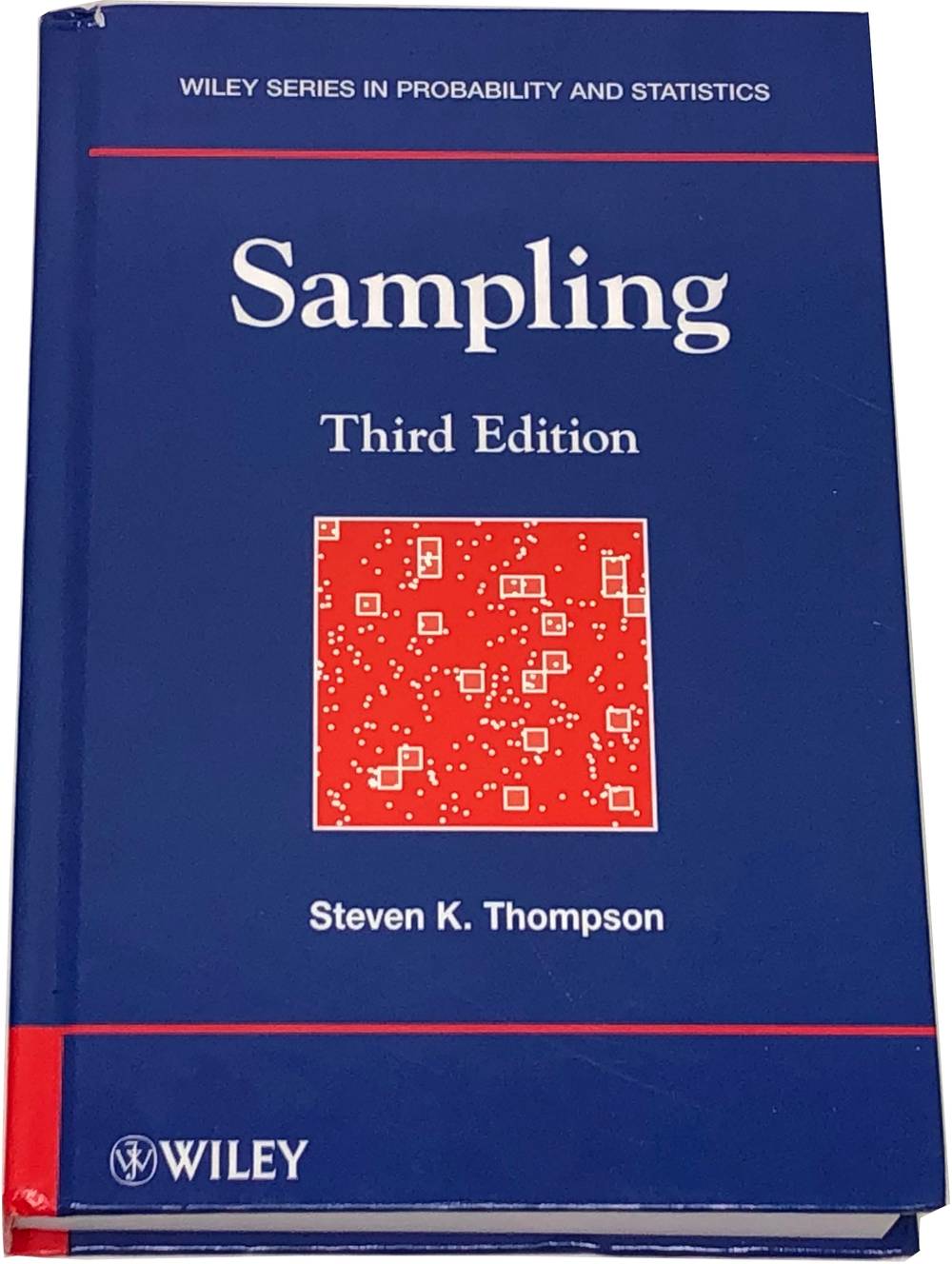Sampling is what you do when you desire to know some aspect of a population but it is too cumbersome to determine that aspect by examining every member of the population. Some examples of sampling include election polling, environmental studies, and market research. Since suboptimal sampling can be both expensive and lead to incorrect conclusions, it is a very important subject in data science.
Recommended Books
Sampling
Steven K. Thompson

Key Features
- In-text exercises
- Answers to many of the exercises
- R code examples
Key Topics
- Adaptive Cluster Sampling
- Adaptive Sampling
- Capture-Recapture Sampling
- Cluster and Systematic Sampling
- Confidence Intervals
- Detectability
- Double Sampling
- Estimating Proportions
- Estimating Ratios
- Finite Population Central Limit Theorem
- Hansen-Hurwitz Estimator
- Horvitz-Thompson Estimator
- Kriging
- Line and Point Transects
- Methods for Elusive and Hard-to-Detect Populations
- Multistage Sampling
- Network Sampling
- Regression Estimation
- Sample Size
- Sampling Without Replacement
- Sampling with Replacement
- Simple Random Sampling
- Simulation
- Spatial Sampling
- Stratified Sampling
- Subpopulation Estimation
- Survey Data
- Unequal Probability Sampling
Description
If you've never formally studied sampling, you'll be amazed by just how little you know about it. This is an extremely well-written canonical text that will take you from sampling basics like finite population corrections into advanced topics like adaptive designs. If you do any sampling at all, you ought to have a copy of this book.